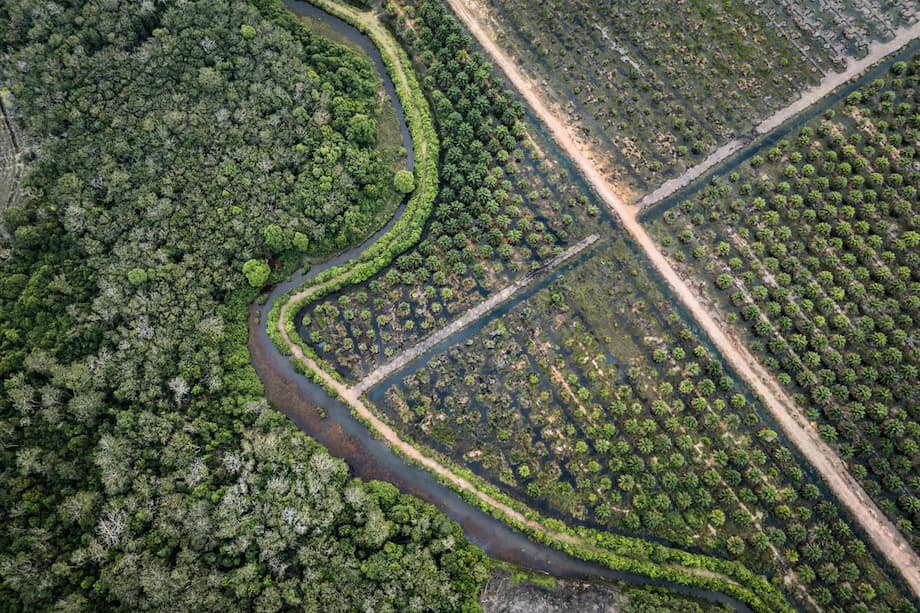Indonesia Launches Sweeping Crackdown on Illegal Mining in Forests
Indonesia, home to some of the world’s richest natural resources and largest tropical forests, is embarking on an ambitious and controversial campaign to stamp out illegal mining and plantation activities within its forested lands. Beginning September 1, 2025, a government task force will target mines operating without proper permits across approximately 4.27 million hectares of forest—an area larger than Switzerland. This move follows a similar operation earlier in the year against illegal palm oil plantations, signaling a new era of resource governance under President Prabowo Subianto.
- Indonesia Launches Sweeping Crackdown on Illegal Mining in Forests
- Why Is Indonesia Targeting Illegal Mining and Plantations?
- How Is the Crackdown Being Carried Out?
- Winners and Losers: Who Is Affected by the Crackdown?
- Government Response and Justification
- Human Rights and Militarization: A Growing Controversy
- Economic and Environmental Implications
- In Summary
The crackdown, led by a multi-agency task force comprising military, police, prosecutors, and civil servants, is part of a broader effort to reclaim state control over natural resources, protect the environment, and ensure that profits from Indonesia’s mineral and agricultural wealth benefit the nation as a whole. However, the campaign has also sparked heated debate over its methods, its impact on local communities, and the future of Indonesia’s forests and resource industries.
Why Is Indonesia Targeting Illegal Mining and Plantations?
Indonesia is a global powerhouse in natural resources. It is the world’s largest producer and exporter of palm oil and a major supplier of thermal coal, nickel, tin, and copper. These industries are vital to the country’s economy, contributing billions of dollars in export revenue and supporting millions of jobs. Yet, decades of weak regulation, corruption, and land tenure disputes have allowed illegal mining and plantation activities to flourish, often at the expense of the environment and local communities.
According to government estimates, illegal mining alone costs Indonesia up to 300 trillion rupiah (about $19 billion) annually in lost taxes, royalties, and unregulated extraction. Environmental damage is severe: illegal operations drive deforestation, pollute rivers, destroy habitats, and contribute to climate change. The palm oil sector, for example, has seen over 3 million hectares of forest converted to plantations without proper permits, undermining Indonesia’s climate commitments and drawing international criticism.
President Prabowo Subianto, who took office with a pledge to restore order and maximize national benefit from Indonesia’s resources, has made the crackdown a centerpiece of his administration. In his first state of the nation address, he vowed to eliminate over 1,000 illegal mining sites and reclaim millions of hectares of forest from unlawful exploitation.
How Is the Crackdown Being Carried Out?
The government’s approach is unprecedented in scale and coordination. The task force, established by presidential regulation, brings together the military, police, prosecutors, and officials from the ministries of forestry, energy, and state-owned enterprises. Their mandate is to identify, seize, and manage illegal mining and plantation operations, using a combination of legal, administrative, and—when necessary—military means.
Key elements of the crackdown include:
- Seizure and Reassignment: Mines and plantations found to be operating illegally are seized by the state and handed over to the Ministry of State-Owned Enterprises for temporary management. In the palm oil sector, much of the reclaimed land has been transferred to a new state company, Agrinas Palma Nusantara.
- Financial Penalties: Owners of illegal operations are ordered to return profits to the state. While not all cases result in criminal prosecution, the government aims to recover lost revenue and deter future violations.
- Military Involvement: The use of military personnel to enforce the crackdown is a notable escalation, justified by officials as necessary due to resistance from entrenched interests and the scale of illegal activities.
- Technological Surveillance: Satellite imagery and drones are being used to detect illegal operations and monitor compliance.
- Legal Reforms: The government is streamlining permits, strengthening penalties, and aligning regulations with international standards to close loopholes and improve transparency.
In a recent example, authorities in Central Sulawesi shut down illegal gold mining operations in a protected forest, seizing heavy equipment and arresting suspects. The operation was prompted by environmental damage linked to deadly floods, underscoring the urgent need for enforcement.
What Minerals and Commodities Are Involved?
While the government has not specified all the minerals targeted, Indonesia’s illegal mining sector is known to focus on high-value commodities such as:
- Nickel: Essential for batteries and electric vehicles, Indonesia holds the world’s largest nickel reserves.
- Coal: A major export commodity, though its environmental impact is increasingly controversial.
- Tin, Copper, and Gold: Used in electronics, construction, and jewelry.
- Palm Oil: Indonesia is the world’s top producer, but illegal plantations have contributed to massive deforestation.
The crackdown is expected to disrupt global supply chains, particularly for nickel, coal, and palm oil, potentially causing price volatility and prompting international scrutiny of Indonesia’s resource governance.
Winners and Losers: Who Is Affected by the Crackdown?
While the government frames the crackdown as a necessary step to protect the environment and ensure fair distribution of resource wealth, critics argue that its implementation has been uneven and, at times, unjust.
Impact on Indigenous Communities and Smallholders
One of the most contentious aspects of the campaign is its impact on indigenous peoples and smallholder farmers who have lived and worked in forest areas for generations. Civil society groups and environmental NGOs warn that the crackdown often fails to distinguish between large-scale corporate violations and the subsistence activities of local communities.
For example, in Aceh province, the task force seized 15,000 hectares of land, much of it cultivated by local communities with crops like durian and candlenut. Activists say that while smallholders and indigenous groups face eviction and loss of livelihood, major companies operating in the same areas have largely been spared enforcement. In some cases, communities have been offered profit-sharing schemes with state-owned companies, but activists argue these arrangements are exploitative and lack due process.
In West Kalimantan and Riau, customary lands have been seized without compensation, and thousands of families have been displaced. School closures and threats to children’s education have been reported. Critics argue that the regulation criminalizes traditional land use and deepens land inequality, transferring control from private monopolies to state-owned enterprises without addressing underlying injustices.
“The regulation makes no distinction between corporate and community activities, leading to displacement of indigenous and local communities while shielding large corporations,” said Afifuddin Acal, head of advocacy at Walhi’s Aceh chapter, Indonesia’s largest environmental NGO.
Corporate Accountability and Selective Enforcement
Activists also highlight a pattern of selective enforcement, where powerful companies with political connections avoid penalties while small actors bear the brunt of the crackdown. Since 2020, no companies have been criminally prosecuted for illegal plantations, despite widespread violations. Corruption cases, such as the high-profile investigation into palm oil tycoon Surya Darmadi, illustrate the challenges of holding corporate offenders accountable.
Transparency International and other watchdogs have called for greater openness in enforcement actions to prevent the regulation from becoming a tool for repression or corporate impunity. Without clear guidelines and safeguards, critics warn, the crackdown risks undermining democracy and environmental justice.
Government Response and Justification
Officials defend the crackdown as a necessary response to decades of environmental degradation and lost public revenue. Minister of Energy and Mineral Resources Bahlil Lahadalia emphasized that the campaign is grounded in Article 33 of Indonesia’s 1945 Constitution, which mandates that natural resources be managed for the people’s prosperity. He stressed the need to bring illegal mining under regulation to protect the environment and secure state revenue, noting that the mining sector contributes about 15 percent of Indonesia’s state income.
President Prabowo has convened cabinet meetings focused on improving governance and permits for strategic commodities, including rare earth minerals vital for high-tech industries. He has pledged that no one, including political elites or state officials, will be shielded from law enforcement. The government is also working to improve legal frameworks, streamline permits, and introduce community monitoring programs to ensure sustainable practices.
“The aim is to protect the environment while ensuring that the state secures revenue,” said Minister Bahlil Lahadalia, reaffirming the government’s commitment to firm action against illegal mining.
Supporters argue that the crackdown will level the playing field for compliant operators, attract investment, and help Indonesia move up the value chain by developing downstream industries such as battery manufacturing and refined metals.
Human Rights and Militarization: A Growing Controversy
The use of military force in civilian law enforcement has reignited debate over Indonesia’s democratic trajectory and respect for human rights. The new regulation revives the military’s “dual function” in civilian affairs—a practice that was supposed to have ended with the fall of the authoritarian regime more than two decades ago.
Human rights groups warn that militarized enforcement increases the risk of abuses, especially in regions with histories of land conflict such as Papua. There are concerns that the campaign could be used to justify forced evictions, criminalize indigenous land use, and suppress dissent. Observers argue that treating forests as national security assets, rather than community resources, undermines both democracy and environmental stewardship.
“Communities living in and around forests are the true protectors and should be empowered, not displaced,” said Difa Shafira, head of forestry and land governance at the Indonesian Center for Environmental Law.
Activists are calling for a new forestry law that recognizes indigenous land rights, mandates ecological restoration, and closes legal loopholes that allow corporate violators to escape accountability. They argue that only a comprehensive legal overhaul can ensure justice and effective forest governance.
Economic and Environmental Implications
The crackdown is expected to have far-reaching consequences for Indonesia’s economy, environment, and international reputation. By disrupting illegal supply chains, the government hopes to boost state revenue, attract responsible investment, and improve environmental outcomes. However, the transition is likely to be painful for local economies that rely on informal mining and plantation work.
Global markets are watching closely, especially in sectors like nickel and palm oil, where Indonesia is a dominant supplier. Stricter enforcement and supply disruptions could drive up prices and prompt buyers to seek alternative sources. At the same time, improved governance and sustainability standards could enhance Indonesia’s standing with international partners and investors.
Environmentalists welcome the focus on reforestation and stricter permitting, but caution that true sustainability requires respecting community rights and restoring degraded lands. The government’s plan to reforest part of the seized land is a positive step, but uncertainty remains about how much will be restored versus retained for state-run plantations or other uses.
In Summary
- Indonesia is launching a major crackdown on illegal mining and plantation activities in its forests, targeting over 4 million hectares of land.
- The campaign is led by a multi-agency task force with military involvement and aims to reclaim state control, recover lost revenue, and protect the environment.
- While the government frames the crackdown as a step toward sustainability and justice, critics warn it disproportionately impacts indigenous communities and smallholders while sparing powerful corporations.
- Human rights groups are concerned about the militarization of enforcement and the risk of abuses, calling for legal reforms to protect community rights.
- The crackdown is expected to disrupt global supply chains for key commodities like nickel and palm oil, with significant economic and environmental implications.
- Activists urge the government to adopt a more inclusive approach that distinguishes between corporate and community activities and prioritizes ecological restoration and social justice.












